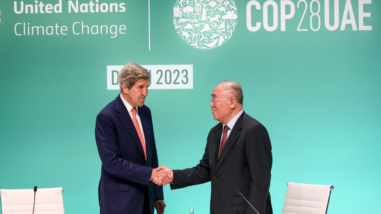Georgetown University
For The Conference On The Judiciary Inquiry
-
Amount$25,000
-
Program
-
Date Awarded4/20/2006
-
Term12 Months
-
Type of SupportProject
About the Grantee
Grantee Website
www.georgetown.edu
Address
Main Campus Office of Research Services
Box 571014 650 ICC, Washington, DC, 20057-1168, United States
Grants to this Grantee
for the Global Political Economy Project
The Global Political Economy Project is leading a reimagining of how we study and engage with global markets in a post-neoliberal era. Led by faculty at Georgetown University’s Mortara Center for International Studies, it is catalyzing innovative, policy-relevant scholarship that explores the politics of global markets and inequality, race and social identities, sustainability, digital technologies, and geopolitical power dynamics. The project’s activities are based around three pillars — generating new ideas, building a new scholarly infrastructure, and engaging with policy practitioners and the public — to build a more inclusive and sustainable version of globalization.
for the Center for the Advancement of the Rule of Law in the Americas Program on Latin American Political Economy and Globalization
The Program on Latin American Political Economy and Globalization (LAPEG) at Georgetown University Law School will serve as an incubator for ideas on alternative models of globalization in the post-neoliberal world. It will promote innovative research on international economic law, reconceptualize Latin America’s insertion into the global economy in the context of U.S.-China competition and give visibility to Latin American perspectives in U.S. debates. The program will establish a network of scholars, policymakers, students, and civil society groups to discuss ideas and policies from which Latin America could benefit. LAPEG is a project of the Center for the Advancement of the Rule of Law in the Americas at Georgetown Law, in collaboration with the Centro de Derecho, Regulación y Economía Sustentable at Universidad de Valparaíso, Chile.
for the Georgetown Climate Center
The Georgetown Climate Center serves as a resource to state, federal, and local policymakers who are working to develop policies to reduce greenhouse gas pollution and become more resilient to the effects of climate change, providing legal, policy, and process support to inform policy development. Georgetown is a leading institution in working with departments of transportation — in states and federally — to support the strong implementation of federal climate investment legislation. Georgetown has supported engagement with a subset of states, led by both Republicans and Democrats, interested in learning more about federal resources to support decarbonization. (Substrategy: U.S. National Policy)



